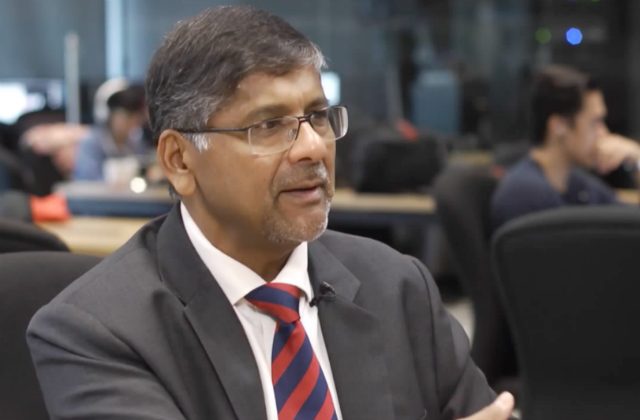SUMMARY
This is AI generated summarization, which may have errors. For context, always refer to the full article.

MANILA, Philippines – British Ambassador to the Philippines Asif Ahmad condemned media killings on Friday, June 3, after recent statements by Philippine President-elect Rodrigo Duterte drew attention to this global issue.
“Whether you agree or disagree with a journalist, there are no circumstances under which anybody can sanction assassination,” Ahmad said in an interview with Rappler’s Maria Ressa.
Ahmad said he he thinks that “this issue has become electric” because “the very instrument through which leaders communicate is being attacked.”
Rappler sought Ahmad’s comment on the issue after journalists criticized Duterte for his latest statements on media killings.
The Philippines is one of the most dangerous nations in the world for journalists, with 174 murdered since the end of the dictatorship of Ferdinand Marcos 3 decades ago.
Duterte explained on Tuesday, May 31, that many journalists get killed because they engage in corrupt activities.”Just because you’re a journalist you are not exempted from assassination, if you’re a son of a bitch,” the president-elect said.
Despite public outrage over his comments, Duterte refused to apologize in a press conference on Thursday, June 2. He told reporters, “What can I do?”
Ahmad said he is “not aware of the full context” of Duterte’s statement.
“I don’t think we heard the president-elect announce the beginning of the killing of journalists, or that somehow the law would be blind to it, and the Constitution would not protect these people in that way,” he said.
Be transparent, journalists told
In his interview with Rappler, Ahmad also said he does not believe that Duterte gave the go-signal for or justified the killing of journalists.
“I cannot imagine anybody in any position of responsibility coming up with that as an agreed line,” he said.
That was unlikely to have happened, he added, even in the darkest periods of Nazi Germany.
Referring to the Nazis, Ahmad said, “They did horrible things but I don’t think they stood up on a platform and said they were going to do these horrible things.”
In the face of media killings, the ambassador said journalists should show greater transparency about their work.
“Journalists in the Philippines and elsewhere need to be a bit more honest about what they’re doing,” he said.
Ahmad said: “If your trip to X, Y, and Z was fully paid for and funded, say so. If you’re writing on behalf of somebody from a position of an advocacy, say so. If it is a paid advertorial, put it in a box with rings on it and say it is an advertorial. Do not pretend that it is journalism.”
“If you’re gonna accuse somebody of something, make sure you get your facts straight,” he added. “If you make a mistake, you have to have the courage to come back and say, ‘I’ve got that one wrong.'” – with reports from Agence France-Presse/Rappler.com
Add a comment
How does this make you feel?
There are no comments yet. Add your comment to start the conversation.